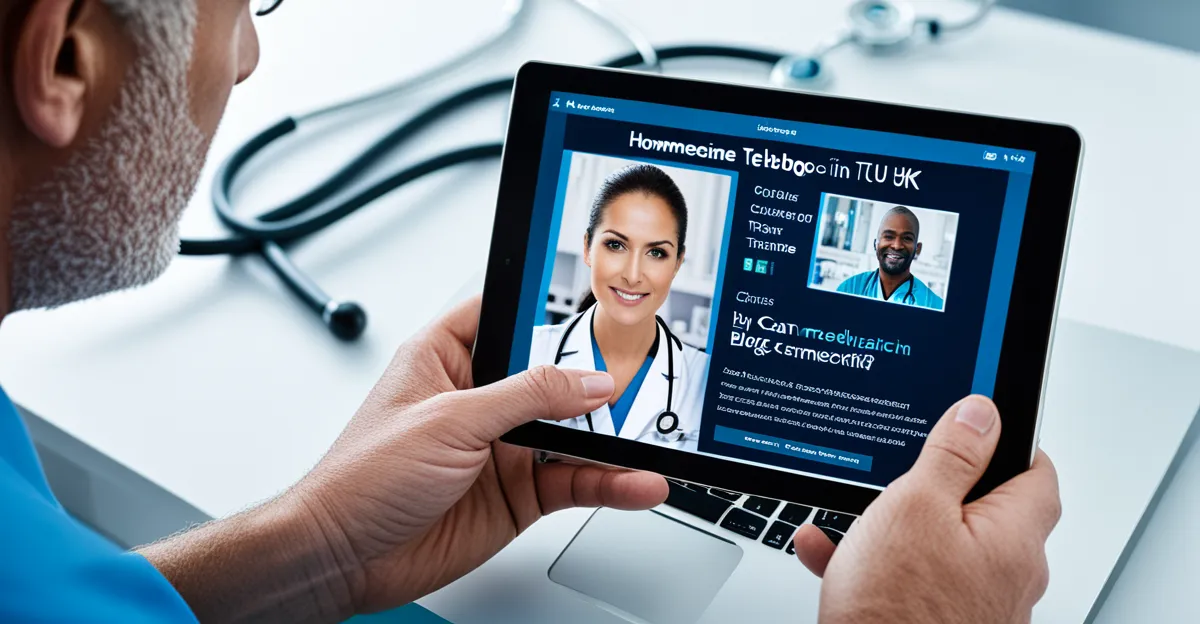Telemedicine and Its Current Role in UK Healthcare
Telemedicine in the UK encompasses the remote delivery of healthcare services using digital technology, a practice evolving rapidly within the NHS virtual care model. This digital health approach allows patients to consult healthcare providers via video calls, online messaging, and mobile apps, removing the necessity for physical visits. NHS virtual care services currently include GP consultations, mental health support, and chronic disease management, demonstrating broad application across disciplines.
Recent statistics reveal that telemedicine UK usage surged, particularly post-pandemic, with more than 40% of GP appointments conducted virtually by 2023. This substantial adoption reflects a shift in both patient and provider behaviors, motivated by convenience and safety. Moreover, specialist virtual clinics and remote monitoring devices are increasingly integrated into routine care, contributing to NHS virtual care’s expanding scope.
Also read : How Can UK Healthcare Enhance Patient Experiences?
The digital health infrastructure supporting telemedicine UK is continually enhanced, facilitating a secure and responsive patient experience. Together, these advances paint a clear picture: telemedicine is firmly embedded in UK healthcare, playing a critical role in how services are accessed, delivered, and managed across the country.
Transformative Benefits of Telemedicine in Patient Care
Telemedicine UK has significantly expanded healthcare accessibility, especially for rural and underserved populations. Remote consultations eliminate travel barriers, allowing patients to connect with healthcare professionals without leaving their homes. This means faster access to care, reducing delays that historically impacted outcomes. A precise look reveals that virtual appointments often cut patient wait times from days to mere hours or minutes, directly improving timely diagnosis and treatment.
Have you seen this : How Can Changes in UK Healthcare Policies Enhance Patient Outcomes?
Beyond convenience, the benefits of telemedicine include enhanced management of chronic conditions through continuous remote monitoring, which keeps patients engaged and better controlled between in-person visits. Such approaches contribute to consistently improved patient outcomes, with reduced hospital admissions reported in several NHS virtual care programs.
For example, mental health services via telemedicine UK have demonstrated increased patient engagement and reduced stigma, fostering more open communication and support. Similarly, digital health innovations in diabetic care have successfully integrated real-time data sharing with clinicians, optimizing treatment plans remotely. These cases illustrate how telemedicine is reshaping patient care through convenience, accessibility, and tailored support across the NHS virtual care spectrum.
Economic and Systemic Impacts on the UK Healthcare System
Telemedicine UK delivers notable benefits in NHS efficiency and healthcare cost reduction. By shifting many consultations online, the NHS reduces overhead expenses related to physical space, administrative burden, and in-person resource use. Studies indicate that digital health solutions can decrease the average cost per patient consultation, optimizing NHS virtual care funding. This reallocation enhances the NHS’s capacity to serve more patients without proportional increases in expenditure.
Moreover, telemedicine reduces hospital admissions and readmissions by enabling continuous remote monitoring and timely interventions, which lowers inpatient costs and frees beds for critical cases. The systemic effect is a less strained healthcare system capable of better resource distribution.
Economic data from recent NHS virtual care initiatives show measurable savings; for instance, decreased emergency room visits and transportation costs reflect substantial financial relief. These savings contribute to a sustainable healthcare model, supporting NHS long-term goals.
In summary, embracing digital health not only promotes NHS efficiency but also fosters significant healthcare cost reduction, making telemedicine UK a vital investment for the future stability and scalability of the NHS.






